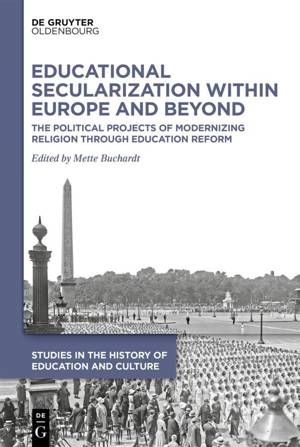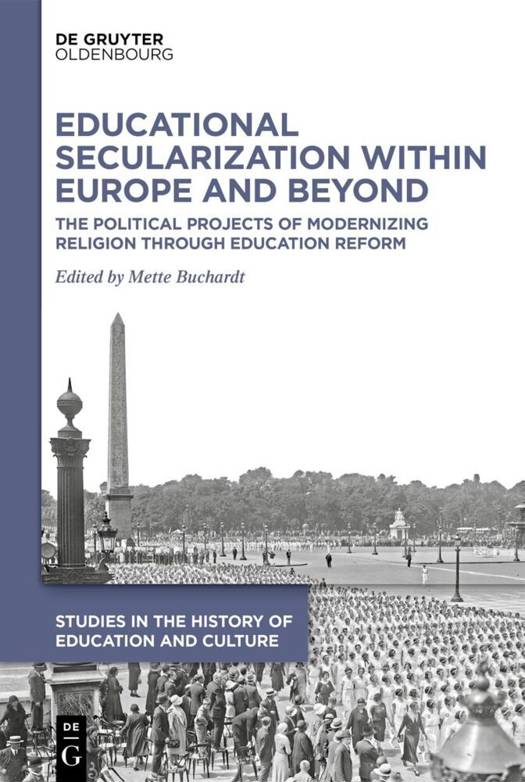
- Afhalen na 1 uur in een winkel met voorraad
- Gratis thuislevering in België vanaf € 30
- Ruim aanbod met 7 miljoen producten
- Afhalen na 1 uur in een winkel met voorraad
- Gratis thuislevering in België vanaf € 30
- Ruim aanbod met 7 miljoen producten
Educational Secularization Within Europe and Beyond
The Political Projects of Modernizing Religion Through Education Reform
Hardcover | Engels | Studies in the History of Education and Culture / Studien Zur Bildungs- Und Kulturgeschichte | nr. 6
€ 124,45
+ 248 punten
Omschrijving
Did religion disappear with modernization and the secularization reforms that changed the relation between religion and state throughout the European empires and nation states from late nineteenth century onwards? Or was religion rather transformed becoming a part of the new social and national imaginaries on the road from European empires to African, Middle Eastern, European Union- and Post-Soviet nation states? What are the historical roots behind the divisions of state, church and education that characterized the late nineteenth and during the twentieth century? What has been the role of education in this context, both with regard to political reforms targeting the education systems and with regard to broader public enlightenment efforts and modernization of the state?
Connecting scholars across the fields of history and historical sociology of education, church history and historical religion research and political history, and covering the time span from the early modern period and up until the present, this volume explores how education reform has functioned as an arena for the political project of secularization and in which way this contributed to transforming and revitalizing religion.
Connecting scholars across the fields of history and historical sociology of education, church history and historical religion research and political history, and covering the time span from the early modern period and up until the present, this volume explores how education reform has functioned as an arena for the political project of secularization and in which way this contributed to transforming and revitalizing religion.
Specificaties
Betrokkenen
- Uitgeverij:
Inhoud
- Aantal bladzijden:
- 306
- Taal:
- Engels
- Reeks:
- Reeksnummer:
- nr. 6
Eigenschappen
- Productcode (EAN):
- 9783111337111
- Verschijningsdatum:
- 4/11/2024
- Uitvoering:
- Hardcover
- Formaat:
- Genaaid
- Afmetingen:
- 156 mm x 234 mm
- Gewicht:
- 648 g

Alleen bij Standaard Boekhandel
+ 248 punten op je klantenkaart van Standaard Boekhandel
Beoordelingen
We publiceren alleen reviews die voldoen aan de voorwaarden voor reviews. Bekijk onze voorwaarden voor reviews.









